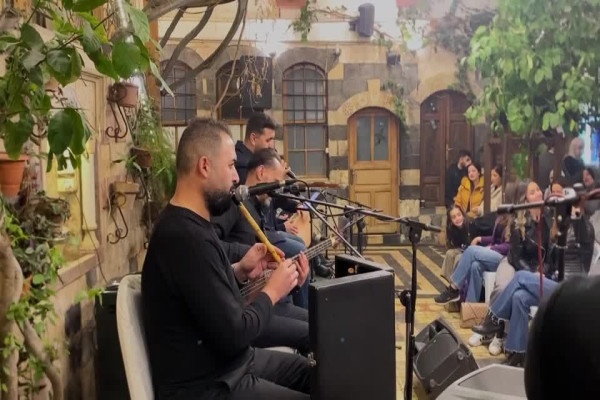On a wintry night in Damascus, hundreds of people packed into a courtyard in the Old
City, dancing and singing during a joyful evening of music – a concert held with the approval of Syria’s new, Islamist-led authorities.
It was the kind of scene that the singer, Mahmoud al-Haddad, feared might be in jeopardy as Islamist rebels led by Hayat Tahrir al-Sham (HTS), a group with origins in global jihad, were advancing on the city in December. “Everyone was afraid,” Haddad said. “Would we be able to have a concert or not?”
The downfall of Syria’s President Bashar al-Assad ended more than five decades of iron-fisted rule by his family and their secular Baath Party, making way for HTS, which emerged from a group that was affiliated to al Qaeda until it cut ties in 2016.
Islamists have taken different approaches to artistic expression and cultural heritage in territories they’ve ruled. The Taliban in Afghanistan have been among the most hardline,
stunning the world in 2001 by obliterating the giant Buddhas of Bamiyan.
In 2024, the Taliban’s morality ministry reported destroying 21,328 musical instruments over the previous year.
But in Syria, following a brief interlude after the fall of Assad, cultural life in Damascus has, for now, flickered back to life – with a nod from the new authorities.
Before resuming his concerts in January at the Beit Jabri restaurant, Haddad first checked with the new authorities: “The answer was surprising to us – ‘You can have your concert, and if you want protection, we will send you protection’,” he said.
Anas Zeidan, an official in the interim administration responsible for museums and antiquities, told Reuters that the government welcomed “all types and forms of art” and encourages the preservation of cultural heritage.
“The government is not against art. The government encourages art. Art is part of humanity,” he said.
Indeed, an exhibition by a prominent artist reopened last month at the National Museum, including a large painting with images of bare skin. At the Higher Institute of Dramatic Arts, students of contemporary dance have resumed rehearsing.
Syria’s National Symphony Orchestra held its first performance since the fall of Assad, who ran a secular police state but allowed space for art and culture that didn’t challenge his rule.
With Reuters inputs
Thirty eight years in journalism, widely travelled, history buff with a preference for Old Monk Rum. Current interest/focus spans China, Technology and Trade. Recent reads: Steven Colls Directorate S and Alexander Frater's Chasing the Monsoon. Netflix/Prime video junkie. Loves animal videos on Facebook. Reluctant tweeter.





